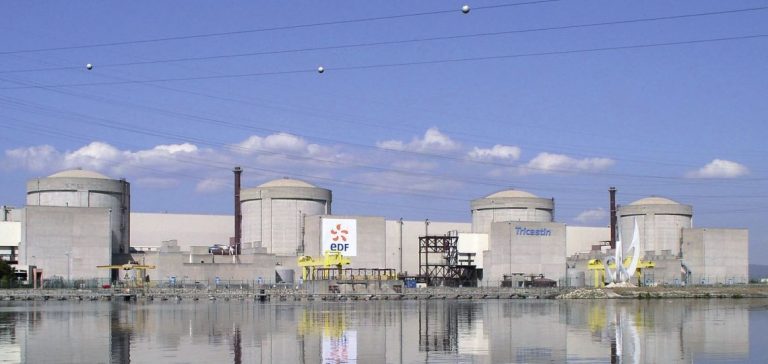The French nuclear fuel specialist, Orano, has laid the first stone for the expansion of its Georges-Besse II uranium enrichment plant in Tricastin, in southern France. This ambitious project aims to increase the production capacity of enriched uranium by more than 30% and to meet the growing demand from electric utility groups to strengthen their supply security.
This extension, estimated at 1.7 billion euros, will consist of the construction of four new enrichment modules complementary to the fourteen existing modules since the inauguration of Georges-Besse II in 2011. The first additional production is scheduled for 2028, with full commissioning by 2030, according to a group statement.
Strengthening Supply Security
“This capacity expansion meets the demands of our electric utility clients to strengthen their supply security, thanks to an initial production scheduled for 2028 and full commissioning by 2030,” said François Lurin, Director of Chemistry-Enrichment Activities at Orano. He added that without the firm commitments from clients, this major investment would not have been possible.
Orano thus intends to diversify the sources of enriched uranium supply for its clients, essential for the manufacture of reactor fuel. This initiative comes in a context where the invasion of Ukraine by Russia in February 2022 highlighted the need for Western countries, notably the United States, to reduce their dependence on Rosatom, the Russian sector giant.
A Concentrated Uranium Market
The global uranium market is dominated by only four main players in the enrichment field: Rosatom (43%), Urenco (31%), CNNC (China National Nuclear Corporation) dedicated mainly to the Chinese domestic market, and Orano (12%). Orano primarily processes natural uranium from Canada and Kazakhstan, thereby strengthening its supply chain.
International Commitments and Expansion in the United States
Orano has obtained long-term commitments from American clients, allowing it to secure this significant investment. In parallel, the group is working on a uranium enrichment project in Tennessee, aiming to establish a solid presence on American soil and further diversify its markets.
Economic Impact and Employment
The construction site, with civil engineering entrusted to Vinci Construction, will mobilize up to 1,000 people at the peak of the works. Preparatory work has already begun several months ago, highlighting the importance of this project for the local and national economy.
According to Nicolas Maes, CEO of Orano, this project will supply “120 million households” with electricity and is one of the five most important industrial projects currently underway in France today. This strategic expansion not only strengthens Orano’s position in the global uranium market but also contributes to European energy security in the face of current geopolitical uncertainties.
Future Perspectives
With this expansion, Orano positions itself as a key player in strengthening European energy sovereignty. By increasing its production capacities, the group aims to offer more reliable and diversified solutions to its clients, while reducing dependence on Russian suppliers. This approach is part of a global strategy to ensure a resilient supply chain and support Europe’s sustainable energy ambitions.






















